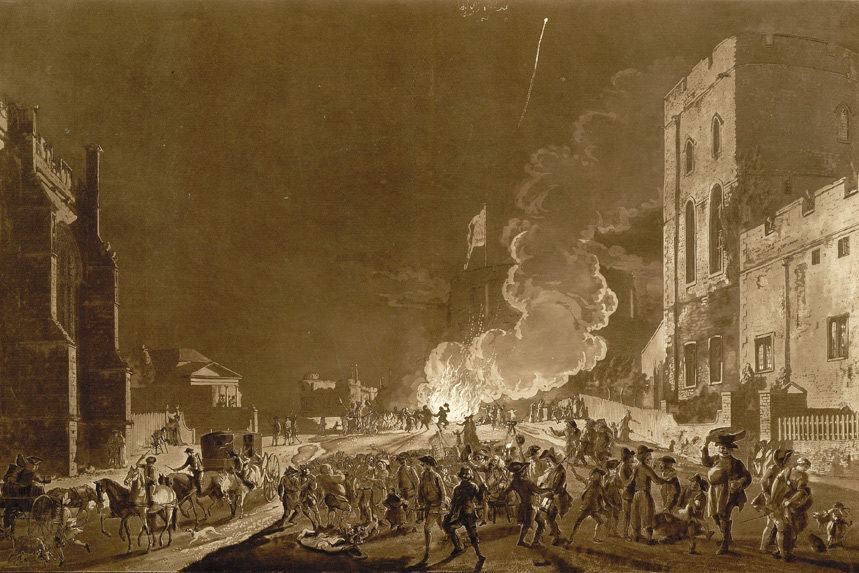Managing editor and logophile Andy Hollandbeck reveals the sometimes surprising roots of common English words and phrases. Remember: Etymology tells us where a word comes from, but not what it means today.
Except among fiction writers and the most cynical of us, tradition and treason seem so far apart that they’re practically opposites. It might be surprising, then, to discover how closely related they are etymologically.
Both words evolved from the Latin traditio “teaching, tradition.” Traditio comes from tradere “to hand over,” from tra- (a shorter version of trans-) “across, through” and –dere, from dare “to give.” You can see where a metaphorical handing over comes into play for both words: Traditions are handed down from generation to generation; treason occurs when information is handed over to the wrong people for nefarious reasons.
This is where both words began, but they evolved in different ways before entering the English language.
Old French absorbed traditio — in the “treachery” sense — as traison. During the 13th century, when French was the language of the English law and royalty, the word was adopted into English and evolved into the treason we know today. Later, during the Hundred Years War — which, among other political outcomes, established the English language as the new lingua franca of English aristocracy — writers reached back and borrowed traditio, which became tradition, directly from Latin.
You read that right: English had treason before it had tradition — the words, at any rate.
The failed Gunpowder Plot of 1605 brought these two related words back together in grand fashion. On a tip, Parliament’s House of Lords was searched on November 4 of that year, and Guy Fawkes was discovered guarding 36 barrels of gunpowder, with which he and his conspirators planned to blow up the building the next day, taking King James I and many other government officials with it.
As a celebration of the foiled treason, November 5 was declared a public holiday beginning the very next year. Then known as Gunpowder Treason Day, the tradition of bonfires and burning Guy Fawkes in effigy continues in England today every November 5 as Guy Fawkes Night.
Thus one failed act of treason led to a long-standing tradition in Great Britain.
Become a Saturday Evening Post member and enjoy unlimited access. Subscribe now




Comments
This is very interesting to me; treason and tradition’s origins. One could also reason too that treason could cause disruption or destruction of a tradition.
Now I’m wondering if disruption and destruction have any ‘family ties’, going way back also.